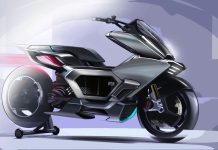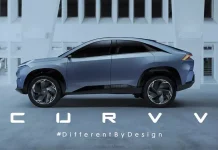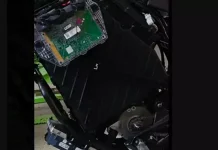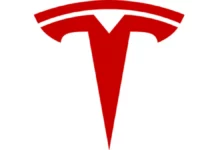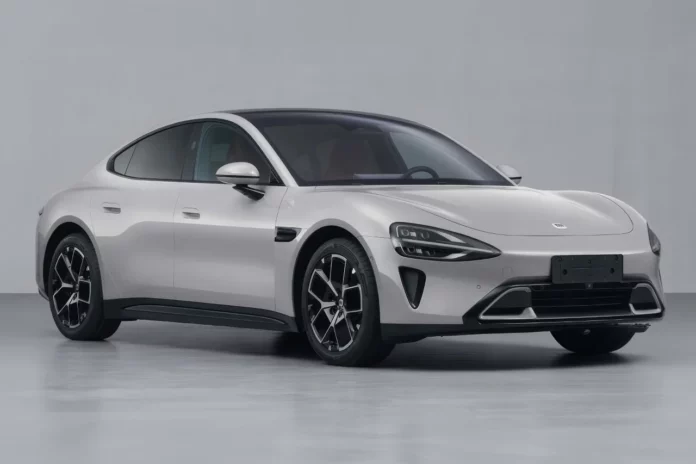Xiaomi’s SU7
The recent announcement of Xiaomi’s first electric vehicle (EV), the SU7, marks a pivotal moment in the intersection of technology and automotive industries. This development is not just about a new EV entering the market; it signifies a broader trend of technology giants stepping into the realm of automotive manufacturing.
Electric Vehicle (EV)
Here is a summary
- Xiaomi is set to enter the electric vehicle (EV) market with its first offering, the SU7.
- The SU7 is expected to be a formidable competitor to the Tesla Model S, with a similar wheelbase and fastback roofline.
- Xiaomi is collaborating with Beijing Automotive Industry Holding Co. (BAIC) to manufacture the SU7.
- The SU7 will be available in multiple variants, including a single-motor rear-wheel-drive version and a dual-motor all-wheel-drive version.
- The high-end model will feature a 100kWh battery and an 800-Volt architecture.
- The SU7 is expected to feature Xiaomi-developed in-car software that integrates with the company’s vast ecosystem of gadgets and services.
- Xiaomi’s entry into the EV market could influence other technology companies to explore vehicle manufacturing.




Technology and Automotive Convergence and Consumer Electronics
Xiaomi, a company renowned for its vast array of consumer electronics and gadgets, is now venturing into uncharted territory, bringing its technological expertise to the competitive and rapidly evolving world of electric vehicles. The SU7 is not just a product launch; it’s a statement about the future of mobility and the role tech companies are poised to play in it.
The entry of Xiaomi into the electric vehicle (EV) market with the SU7 is a significant development, reflecting the ongoing trend of technology companies diversifying into the automotive sector. This move is particularly notable for several reasons:
- Tech Giants Entering Automotive Space: Xiaomi’s foray into EVs highlights the increasing interest of tech companies in the automotive industry. This trend is driven by the convergence of technology and automobiles, especially with the rise of electric vehicles, autonomous driving, and connected car technologies. Companies like Apple, Google, and now Xiaomi are leveraging their expertise in technology to innovate in the automotive space.
- Strategic Collaboration: Xiaomi’s partnership with Beijing Automotive Industry Holding Co. (BAIC) for manufacturing the SU7 underscores a strategic approach. By collaborating with an established automaker, Xiaomi can leverage BAIC’s experience in vehicle manufacturing while focusing on its strengths in technology and consumer electronics.
- Competition with Established Automakers: The SU7 is positioned to compete with luxury EVs like the Tesla Model S, indicating Xiaomi’s ambition to not just enter but also compete in the high-end EV market. This move could potentially disrupt the current market dynamics, challenging established automakers.
- Integration of Technology and Automotive Expertise: The SU7’s emphasis on in-car software and potential integration with Xiaomi’s ecosystem of gadgets and services highlights the unique value proposition that technology companies can bring to the automotive sector. This integration can lead to innovative features and enhanced user experiences, setting new standards in the automotive industry.
- Global Market Dynamics: While the immediate focus of the SU7 seems to be the Chinese market, Xiaomi’s global presence raises questions about its potential international availability. The brand’s decision on whether to market the SU7 globally will likely depend on various factors, including market response, regulatory environments, and Xiaomi’s strategic priorities.
- Influence on the Broader Market: Xiaomi’s move into EV manufacturing could inspire other technology companies to explore similar ventures, especially as the smartphone market matures. This could lead to further blurring of the lines between technology and automotive industries, with more tech companies potentially developing their own vehicles or automotive technologies.
- Long-term Implications: The success or failure of the SU7 and Xiaomi’s venture into EVs will have implications for the company’s future direction and for the broader intersection of technology and automotive sectors. It will be interesting to see how Xiaomi’s approach influences the strategies of other tech companies eyeing the automotive market.



Automotive Innovation
The announcement and development of Xiaomi’s SU7 electric vehicle (EV) bring a set of pros and cons that reflect the complexities of a technology company entering the automotive industry. Here’s an analysis of these advantages and disadvantages:
Pros:
- Innovation in Automotive Technology: Xiaomi’s strong background in consumer electronics and technology could lead to innovative features in the SU7, particularly in areas like in-car entertainment, connectivity, and user interface design.
- Market Diversification: For Xiaomi, entering the EV market represents a strategic diversification, reducing its reliance on the smartphone market which is nearing saturation.
- Brand Expansion and Recognition: This move could enhance Xiaomi’s brand image, showcasing its capabilities beyond smartphones and consumer electronics, and positioning it as a versatile and forward-thinking company.
- Tech-Driven User Experience: Xiaomi can leverage its expertise in software and IoT (Internet of Things) to provide a unique user experience, integrating the vehicle with its ecosystem of smart devices.
- Potential for Global Reach: With its established global presence, Xiaomi has the potential to market the SU7 across various regions, tapping into new customer segments.
Cons:
- Manufacturing and Quality Challenges: Automotive manufacturing is complex and requires high standards of quality and safety. As a new entrant, Xiaomi might face challenges in achieving these standards, especially compared to established automakers.
- Market Competition: The EV market is highly competitive, with established players like Tesla and traditional automakers rapidly expanding their EV offerings. Xiaomi needs to offer distinct advantages to carve out a significant market share.
- Regulatory Hurdles: Automotive regulations vary significantly across countries and can be quite stringent. Compliance with these regulations can be a significant challenge, especially for a new player like Xiaomi.
- Consumer Trust and Brand Perception: Consumers might be hesitant to purchase vehicles from a brand traditionally known for electronics. Building trust in the automotive space will require time and proven reliability.
- After-Sales Service and Support: Providing comprehensive after-sales support, including service networks, spare parts, and customer service, is crucial in the automotive industry and could be a significant challenge for a tech company like Xiaomi.
- Global Market Dynamics: While Xiaomi has a strong presence in Asia and Europe, entering the North American automotive market, dominated by local giants and stringent regulations, could be particularly challenging.
Xiaomi’s venture into the EV market with the SU7 has the potential to bring fresh innovation and competition. However, it also comes with significant challenges, particularly in manufacturing, market competition, regulatory compliance, and building consumer trust in a new domain. The company’s success in this venture will depend on how well it leverages its technological strengths while overcoming the hurdles typical of the automotive industry.
EV Manufacturing and Quality Standards
Conclusion
Xiaomi’s foray into the electric vehicle market with the SU7 is more than just an expansion of their product line; it’s a reflection of the transformative era where technology and automotive industries are increasingly converging. The SU7 represents a significant step by a tech giant into a domain traditionally dominated by automotive companies, underscoring a future where the lines between technology and transportation are blurred.
The success of this venture could potentially open the floodgates for other tech companies to explore automotive manufacturing, signaling a new phase in the evolution of both the tech and automotive industries. As the global market for smartphones reaches saturation, ventures like the SU7 could pave the way for the next frontier in technological innovation and market dynamics.
Overall, Xiaomi’s announcement of the SU7 is a clear indication of the evolving landscape where technology and automotive industries are increasingly intersecting, leading to innovative products and new competitive dynamics.




















